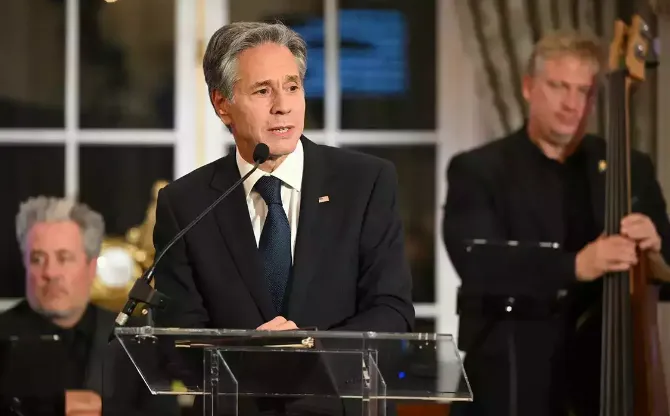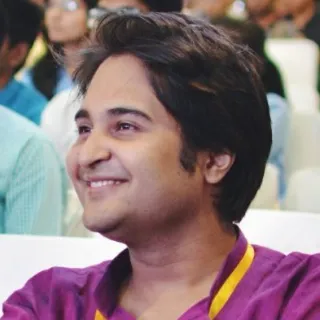
On 27 September, at the Benjamin Franklin Room of the United States (US) Department of State, Secretary of State, Antony J. Blinken was seen playing a guitar and singing the song ‘Hoochie Coochie Man’ from 1954, composed by Willie Dixon and performed by Muddy Waters. At a time when the US is staring at a government shutdown and the Ukraine-Russia war’s end is nowhere in sight, Secretary Blinken’s “rock-and-roll” performance was not merely an exercise in vanity. He was performing at the launch of the State Department’s new Global Music Diplomacy Initiative which aims to deploy music as an instrument of diplomacy to promote global peace and democracy, aligning with the US’ larger foreign policy goals. The evening witnessed a remarkable bipartisan moment as Republican Head of the House Foreign Affairs Committee, Mike McCaul praised Secretary Blinken and likened the evening to the White House performances of the Kennedy era. McCaul had sponsored the PEACE Through Music Diplomacy Bill, which passed in the Senate in December last year. The Act aims to leverage partnerships with the private sector for designing and implementing music-related exchange programmes; authorising music-related exchange programmes that advance peace abroad; and integrating a focus on conflict resolution into all relevant exchange programmes for young musicians.
At a time when the US is staring at a government shutdown and the Ukraine-Russia war’s end is nowhere in sight, Secretary Blinken’s “rock-and-roll” performance was not merely an exercise in vanity.
Music diplomacy often acts as a subset of cultural diplomacy. In cultural diplomacy, nations seek to mobilise their cultural resources to achieve foreign policy goals. It involves the exchange of ideas, information, art, language, and other aspects of culture among nations and peoples to foster mutual understanding and soft power exertion. In 1954, President Dwight D. Eisenhower established an Emergency Fund for International Affairs to stimulate the presentation of America's cultural achievements to international audiences in the realms of dance, theatre, and music. Among all the pillars of cultural diplomacy, music has emerged as a prominent medium in which different communities can share ideas and experiences, increasing cultural understanding and tolerance. Music diplomacy is not new to the US or any other nation’s statecraft. Sponsored by the US State Department, amidst the heightened tension of the Cold War era, influential Jazz icons like Dizzy Gillespie and Louis Armstrong played a pivotal role in introducing American culture to Soviet audiences, contributing significantly to the cultivation of cross-cultural appreciation and comprehension. Naresh Fernandes’s seminal book Taj Mahal Foxtrot chronicles the influence of American Jazz in not just developing a vibrant jazz ecosystem in a Non-Aligned nation like India but also their role in nation-building. Being a soft power apparatus, music serves as a means for the US to project an image of the free world, rooted in pluralistic values and diverse identities. In an endeavour to advocate a message of peace during the Vietnam War, The Beatles composed and delivered the song “All You Need Is Love”. Cross-country collaborations among musicians from different parts of the world tend to create greater room for mutual trust and admiration. In 1906, the German Kaiser had specifically dispatched conductor Karl Muck to Boston to enhance German-American relations. In 2003, the Iraqi National Orchestra endeavoured to gain favour with the American public by presenting a concert in Washington, D.C.
Cross-country collaborations among musicians from different parts of the world tend to create greater room for mutual trust and admiration.
India has also leveraged its millennia-old cultural heritage and its contemporary manifestations to aid diplomatic outreach. Under the Ministry of External Affairs (MEA), the Indian Council for Cultural Relations (ICCR) was established in 1950 to revive and strengthen India’s cultural relations with the rest of the world. The Buddhist circuit and Ramayana circuit, led by India, are prominent tools of cultural diplomacy. India’s soft power got a major boost with the recognition of International Day of Yoga at the United Nations General Assembly in 2014. Previously, Indian movies helmed by Amitabh Bachchan and songs such as Raj Kapoor’s Awara Hoon were immensely popular in Soviet Russia, the Middle East, and Afghanistan. In 2008, MEA’s Public Diplomacy Division brought out a 60-song CD pack in association with Saregama, covering Bollywood music from 1946 to 2006, which was supposed to be gifted to various foreign ministry officials when Indian delegations would visit a country. The cultural conditioning that happens via music helps people establish communication channels with those who might not be able to meet with each other under normal circumstances. Music as a tool to propagate national ideals, aspirations, and values could be manifested by no less than the national anthem of a nation itself. Music diplomacy could also be an effective off-ramp in conflict prevention and mitigation between two countries or ethnic communities.
The cultural conditioning that happens via music helps people establish communication channels with those who might not be able to meet with each other under normal circumstances.
In the modern era, the US employs music diplomacy by organising hip-hop festivals in the Middle East. Conversely, China has been organising opera in its neighbourhood to project a softer image. When musical diplomacy garners media attention, it has the potential to draw focus to political and social issues, thereby exerting a tangible influence on international policy. Coinciding his tours with the G7 or G8 meetings, Bono, the lead singer of the Irish rock band U2, successfully contributed to the relief of Africa's financial debt by leveraging his platform to raise awareness among both audiences and governments regarding the plight of African populations. In the recently concluded G20 Summit hosted by India, cultural and music diplomacy were on full display with the presentation of Konark Chakra, the bronze statue of the Nataraja, Manish Malhotra’s collection at the G20 spouse’s event inspired by Indian traditional crafts, and performances of Indian folk dancers from different states during the arrival of global leaders in New Delhi. The new Global Music Diplomacy Initiative includes the American Music Mentorship Program (it will bring international mid-career music industry professionals to the US for mentorship and networking opportunities), the Fulbright-Kennedy Center Visiting Scholar Award in Arts and Science, and efforts aimed at incorporating American music and lyrics into global classrooms as representative of the US' commitment to promoting English-language learning worldwide. In the launch programme, Quincy Jones received the first-ever Peace through Music Award for promoting peace globally. As part of the initiative, 60 international students from each continent will be connected virtually for intense music training; musicians from Ghana and Nigeria will unite to collectively produce and engage in discussions on how music can foster unity through social entrepreneurship initiatives; US hip-hop artists focusing on conflict transformation will travel to Nigeria; 10 American bands will travel to 30 countries and arts envoys will travel to the Middle East and China.
China’s recent blockbuster “Born to Fly” seeks to project the idea of Chinese supremacy and supposed US aggression towards China in the South China Sea.
The US seems to be aiming towards a greater soft power push with this initiative. There was a time when American pop culture was the prima donna globally. However, with the deep penetration of the internet and globalisation, most countries have started exerting cultural influence across the globe. Of late, South Korean bands like the BTS and K-dramas have captured the imagination of youth globally. Türkiye came up with the television drama, “Ertugrul,” which became hugely popular among Muslims worldwide. China’s recent blockbuster “Born to Fly” seeks to project the idea of Chinese supremacy and supposed US aggression towards China in the South China Sea. In this scenario, the US’s move towards integrating the youth globally via music diplomacy seems prudent. Moreover, the prominent focus on African countries in this initiative could not be glossed over given the rising strategic importance of the African Union with most countries flocking to court them off late. Music as a subtle tool to advance diplomatic outcomes becomes necessary at a time when there is a growing global perception about a probable US decline on the world stage , the rise of China, and strategic autonomy displayed by some middle-income countries. In the future, the Global Music Diplomacy Initiative should incorporate US allies and partners, primarily in the Indo-Pacific and more countries in the Global South. Asian countries like Japan, India, and South Korea have an enviable heritage of musical traditions. Indian External Affairs Minister, Dr. S. Jaishankar commented last year that it was his exposure to music of different countries that drove his interest in diplomacy. India’s rich classical music tradition along with folk and movie-specific music could be potent tools for music diplomacy. However, the limitations to music diplomacy have been spectacularly borne out by the state of India-Pakistan ties, wherein, despite the humongous volume of collaborations between Indian and Pakistani artists, the bilateral relationship has remained impervious to compromise and consensus.
Manish Dabhade teaches Diplomacy in the School of International Studies, JNU & is Founder of The Indian Futures, an independent think tank. Subhrangshu Pratim Sarmah is the Director of The Indian Futures-Guwahati
The views expressed above belong to the author(s). ORF research and analyses now available on Telegram! Click here to access our curated content — blogs, longforms and interviews.




 PREV
PREV


